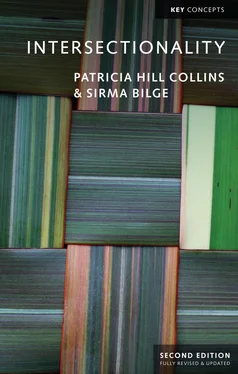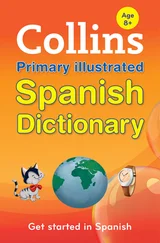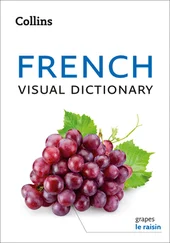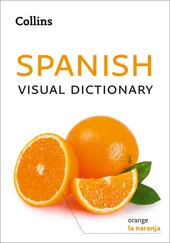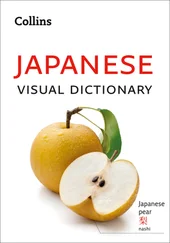This book, then, is the result of a true collaboration. Neither one of us could have written it alone. We felt the need for a book that would introduce the complexities beyond the audiences with whom we both felt comfortable. We started our conversation from our different locations within inter-sectionality and worked our way toward carving out points of connection. Sirma writes about intersectionality in French and English within a francophone academic context of the linguistically restless Tiohtià:ke (Montreal) situated on the unceded Kanien’kéha (Mohawk) territory, where the competition between French and English overshadows indigenous language struggles. Acutely aware of the problems of translation across her three languages of Turkish, French, and English, Sirma brings a commitment to situating intersectionality within global frameworks and the geopolitics of knowledge. Always mindful of her roots in a working-class, African American neighborhood in Philadelphia, Patricia writes for academic audiences and general readers in US and UK contexts. Her work is widely recognized, yet the demands of helping to institutionalize intersectionality in the academy has limited her involvement in activist settings. During many conversations, we hammered out the arguments that we felt would be most useful to our readers.
We could see how we complemented one another and knew that the ideas that could travel across the kinds of differences that shaped our own lives were likely to be the strongest ideas for intersectionality. One core premise of intersectionality concerns the relationships between ideas, practices, and, in this case, the execution of this book. This entailed working through and across many differences. Yet we quickly found out that dialog is hard work. In a sense, we lived our material via the process we chose to follow in writing this book. Don’t get us wrong! It is not as easy as it sounds, and there is nothing romantic about that. It involves labor and it creates tension – but generative tension.
There were so many moving points to this kind of conversation and, by implication, to the kind of work that intersectionality must do. The process involved getting fluent in each other’s language of intersectionality, in each other’s ways of putting things together, in each other’s perspective and perception. We also needed to speak several languages, for intersectionality is everywhere, and it is polyglot: it speaks the language of activism and community organizing as much as it speaks that of academia or of institutions. It speaks to young people through social media and popular culture and to established scholars through journals and conferences. These different fields of practice of intersectionality do not engage each other as much as they should, perhaps because they lack a common language. If such is the case, then our book needs to speak to these different constituencies in ways that are not mutually exclusive, in a language that is audible and makes sense for them.
Consider this book an invitation for entering the complexities of intersectionality. We provide some navigational tools for moving through intersectionality’s vast terrain. The book is a road map for discovery and not a portrait of a finished product. We simply could not include everything in one volume. You may find that some of your favorite authors are barely mentioned and that authors of whom you have never heard are discussed at length. We mention many areas of intersectionality, but could not include an extensive discussion of public health, epistemology, environmental issues, the arts, and many other areas where people have taken up the ideas of intersectionality. Just as we brought different areas of expertise and interest to the process of writing the book, yet learned to listen to one another and translate along the way, we encourage you to do the same as you pursue these areas.
Just as our collaboration was crucial for the book, so we value the support of others who helped us along the way. We both thank the team at Polity for shepherding this project through unexpected delays. Thanks to Louise Knight, our editor, who brought the idea for this book to us and trusted our ability to get it done; to Evie Deavall, production editor at Polity; editorial assistant Inès Boxman; and copyeditor Sarah Dancy. We also appreciate the comments of the two anonymous reviewers whose critical eye greatly strengthened this text, as well as anonymous scholars who have used the first volume of our book in their teaching and who gave Polity feedback.
First and foremost, Sirma wishes to thank her partner Philippe Allard, who always stood by her through the ups and downs of all her writing projects, and her sister Gönenç Bilge-Sökmen and her mother Figen Bilge for their unfailing love and support, despite the great physical distance that separates her from them. Sirma thanks graduate students who attended her past and present seminars at the Université de Montréal for being a constant reminder of the utter necessity of pursuing critical work, and for making her feel intellectually and emotionally less out of place. They are far too many to list here. Their reception and critical engagement with the first edition of this book in Sirma’s graduate seminar on intersectionality have been invaluable. Her appreciation also goes to colleagues in the sociology department at the Université de Montréal, with special thanks for their support to Anne Calvès, Christopher McCall, and Marianne Kempeneers, the department’s head, and librarian Catherine Fortier. Sirma expresses heartfelt gratitude for the friendship and solidarity of some amazing scholars and activists, for many impassioned conversations: thanks especially to Sara Ahmed, Paola Bacchetta, Leila Bdeir, Leila Ben Hadjoudja, Karma Chávez, João Gabriell, Eve Haque, Jin Haritaworn, Suhraiya Jivraj, Yasmin Jiwani, Délice Mugabo, Jen Petzen, Julianne Pidduck, Malinda Smith, Michèle Spieler, and Rinaldo Walcott. Arashi needs to be thanked for bringing feline grace and mandatory playtime to her life. Last but not least, Sirma wishes she could thank her father, Ugur Bilge, for his constant support, for never failing to ask, “Isn’t it finished yet?” and for prompting her to translate it into Turkish. Ugur Bilge, who planted the passion for reading in Sirma’s life first through the children’s books of Iranian Marxist Samed Behrengi, suddenly passed away in 2014; Sirma dedicates this book to his memory.
Patricia would like to thank Roberto Patricio Korzeniewicz, whose strong leadership of the department of sociology at the University of Maryland provided a welcome backdrop for this project. She also is indebted to the many graduate students who contributed to this work: Les Andrist, Melissa Brown, Kathryn Buford, Rod Carey, Nihal Celik, Valerie Chepp, Michelle Corbin, Paul Dean, Rachel Guo, Tony Hatch, Nazneen Kane, Wendy Laybourn, Chang Won Lee, Angel Miles, Allissa Richardson, Jillet Sam, Dina Shafey, Michelle Smirnova, Margaret Austin Smith, Danny Swann, Kristi Tredway, Kevin Winstead, Laura Yee, and Sojin Yu. Patricia extends special thanks to Ana Claudia Pereira and her many new colleagues and friends in Brazil for numerous wonderful conversations about intersectionality and black feminism. She also thanks her many colleagues who, over the past several decades, have contributed to the success of this book. She wishes she could thank them all, but she particularly thanks Margaret Andersen, Juan Battle, Cathy Cohen, Brittney Cooper, Kimberlé Crenshaw, Jessie Daniels, Angela Y. Davis, Kristi Dotson, Michael Eric Dyson, Joe Feagin, Cheryl Gilkes, Evelyn Nakano Glenn, Beverly Guy-Sheftall, Sandra Harding, Elizabeth Higginbotham, Dorothy Roberts, Graham Hingangaroa Smith, Linda Tuhiwai Smith, Catherine Knight Steele, Bonnie Thornton Dill, Lynn Weber, and Nira Yuval-Davis. Finally, Patricia could not have finished this project without the support of her family and friends: Roger, Valerie, Lauren, and Patrice. Her amazing grandsons Harrison and Grant are the light of her life, and she dedicates this book to their generation.
Читать дальше
